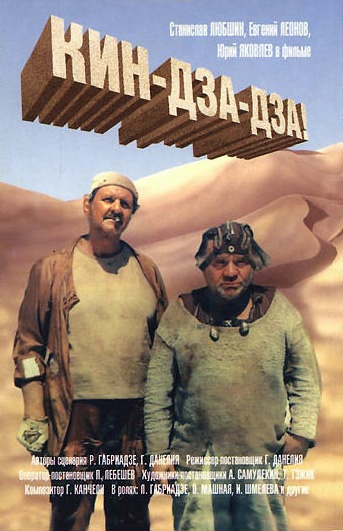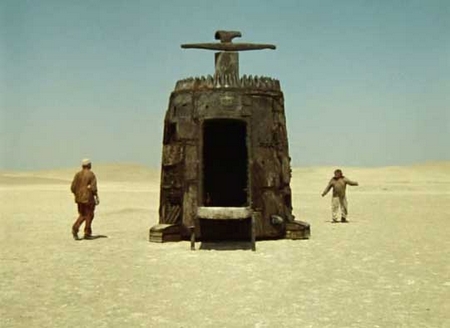Ha. I wouldn’t have guessed that on my own. Yury Yakovlev, who plays Bi in “Kin-Dza-Dza” is the same person who played Ippolit in Ryazanov’s “The Irony of Fate.” I had immediately recognized Yevgeny Leonov, the actor who plays Uef, as the same guy who had played the old retired military officer who rescues our hero in Mimino. But I hadn’t recognized his sidekick at all. Goes to show he has a bit of range to his talents. Contrast that to someone like Nikita Mikhalkov, who plays the same character no matter what movie he’s in.
I had earlier commented on how I couldn’t tell what had made the movie difficult to get past the Soviet censors. Well, duh, I should have known because I’ve talked about this several times. Usually in Soviet movies, the law enforcement and legal authorities are portrayed as wise, kindly, omniscient characters (e.g. in Brilliantovaya Ruka, Mimino) unless, of course, they are pre-revolutionary characters (e.g. in Siberiade). In Kin-Dza-Dza, nobody on planet Pluk is a nice guy. They are all back-stabbing, manipulative, selfish, ordinary people that are your everyday companions and colleagues. But the ecilops (police) are especially easy to dislike — smarmy characters like some bullies we all knew in school.
Maybe the trick was to get the censors to think of these as pre-revolutionary characters. (It’s just a guess, though.)



